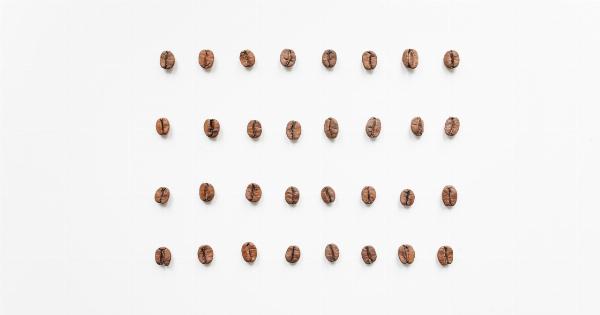Coffee is one of the most widely consumed beverages in the world, known for its stimulating effects and rich flavor.
But did you know that coffee also offers numerous health benefits, including protection for the liver? Over the years, several studies have shown a strong association between coffee consumption and a reduced risk of liver diseases, including liver cancer, cirrhosis, and non-alcoholic fatty liver disease (NAFLD). In this article, we will explore the science behind coffee’s protective benefits for the liver.
1. Antioxidant Properties of Coffee
Coffee is packed with powerful antioxidants, such as chlorogenic acid, caffeic acid, and melanoidins, which have been found to have protective effects on the liver.
These antioxidants help neutralize harmful free radicals in the body, reducing oxidative stress and inflammation, both of which play a crucial role in the development of liver diseases.
2. Reduced Risk of Liver Cancer
Liver cancer is one of the leading causes of cancer-related deaths worldwide. However, research suggests that coffee drinkers may have a lower risk of developing liver cancer.
A meta-analysis of 26 studies found that individuals who consumed three or more cups of coffee per day had a 29% lower risk of liver cancer compared to those who didn’t drink coffee. The exact mechanisms behind this protective effect are still being studied, but coffee’s antioxidant and anti-inflammatory properties likely play a role.
3. Protection Against Cirrhosis
Cirrhosis is a late-stage liver disease characterized by irreversible scarring and damage to the liver tissue.
Long-term alcohol consumption is the most common cause of cirrhosis, but other factors, such as viral hepatitis and NAFLD, can also contribute to its development. Multiple studies have shown that coffee consumption is associated with a lower risk of cirrhosis. One study found that each additional cup of coffee per day was associated with a 22% reduction in the risk of developing cirrhosis.
Coffee’s ability to reduce liver inflammation and protect against oxidative stress may contribute to this beneficial effect.
4. Coffee and Non-Alcoholic Fatty Liver Disease
Non-alcoholic fatty liver disease (NAFLD) is a condition characterized by the accumulation of fat in the liver, usually due to factors such as obesity, insulin resistance, and poor diet.
NAFLD can progress to more severe liver damage, including inflammation and scarring if left untreated. Fortunately, studies have shown that regular coffee consumption is associated with a reduced risk of developing NAFLD.
In a large population-based study, individuals who drank three or more cups of coffee per day had a 40% lower risk of developing NAFLD compared to those who didn’t drink coffee.
5. Effect of Coffee on Liver Enzymes
Elevated levels of liver enzymes, such as alanine aminotransferase (ALT) and aspartate aminotransferase (AST), are often an indication of liver damage or inflammation.
Several studies have demonstrated that coffee consumption is associated with lower levels of these liver enzymes, suggesting a protective effect on liver health. In one study, individuals who drank at least three cups of coffee per day had a 25% lower risk of elevated ALT levels compared to non-coffee drinkers.
6. Coffee and Hepatitis C
Hepatitis C is a viral infection that can lead to chronic liver disease, cirrhosis, and liver cancer. Recent research has indicated that coffee consumption may have a positive impact on individuals with hepatitis C.
A study found that patients with hepatitis C who drank coffee had a lower risk of developing liver fibrosis, a process in which healthy liver tissue is replaced by scar tissue. The exact mechanisms are still unclear, but coffee’s antioxidant and anti-inflammatory properties may contribute to these protective effects.
7. Coffee’s Impact on Liver Fat
In addition to protecting against NAFLD, coffee consumption has also been shown to reduce liver fat in individuals who already have the condition.
A randomized controlled trial demonstrated that drinking four cups of coffee per day for 24 weeks resulted in a significant reduction in liver fat compared to a control group.
8. Coffee and Liver Enzyme Disorders
Some individuals may have liver enzyme disorders, such as Gilbert’s syndrome or non-alcoholic fatty liver disease, which can cause elevated levels of liver enzymes.
Studies have suggested that regular coffee consumption may help normalize liver enzyme levels in individuals with these conditions, improving overall liver health.
9. Coffee and Liver Fibrosis
Liver fibrosis is a gradual process in which healthy liver tissue is replaced by scar tissue, impairing liver function. Several studies have indicated that coffee drinking may have a protective effect against liver fibrosis.
In one study, individuals who drank coffee had a lower risk of developing advanced liver fibrosis compared to non-coffee drinkers.
10. Potential Mechanisms of Coffee’s Protective Effects
While the exact mechanisms behind coffee’s protective effects on the liver are still not fully understood, several theories have been proposed.
One theory suggests that the antioxidants present in coffee help reduce inflammation and oxidative stress, both of which are known contributors to liver damage. Another theory suggests that coffee components may inhibit the growth of liver cancer cells or promote their apoptosis (cellular death).
Additionally, coffee consumption has been associated with improved insulin sensitivity, which may play a role in the prevention and management of liver diseases.
Conclusion
As research continues to uncover the science behind coffee’s protective benefits for the liver, it becomes evident that moderate coffee consumption can be a valuable addition to a healthy lifestyle.
From its antioxidant properties to its potential to reduce the risk of liver diseases such as liver cancer, cirrhosis, and NAFLD, coffee offers a natural and enjoyable way to support liver health. However, it is important to remember that individual responses to coffee may vary, and excessive consumption or additional factors may negate some of the potential benefits.
It is always best to consult with a healthcare professional to determine the appropriate amount of coffee for an individual’s specific circumstances.



























